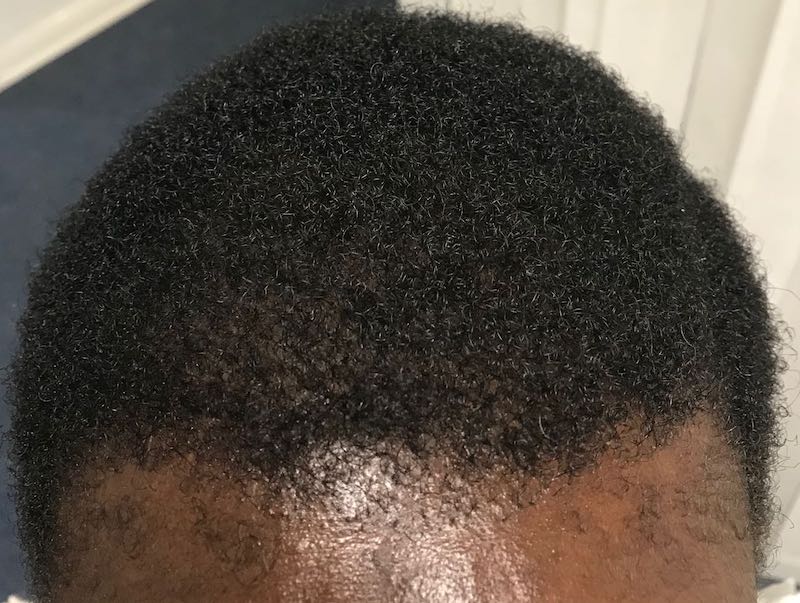Does Afro Hair Transplant Work?
A hair transplant means when a plastic or dermatological surgeon transplants healthy hair grafts to a bald part of the head. Hair is often moved from the rear or side of the head to the front or top of the head by the surgeon. Hair transplants are usually performed under local anesthetic in a certified clinic. The bulk of hair loss is caused by pattern baldness. Genetics and general health have a role in this, and chemical relaxers may cause hair loss.
The most common reason for afro hair loss is traction alopecia, which is caused by tight braids. A receding hairline near the temple of the head is usually the first sign. This is because of the long-term stress that hair follicles are subjected to. It’s more frequent in women, although some males can be afflicted as well. Men, on the other hand, are more likely to develop Androgenic Alopecia, which can result in a diffuse pattern of hair loss. As a result, a robust donor site at the back of the head isn’t usually ideal for graft extraction.
It is now common practice to perform a hair transplant on afro hair type and it works just as well as on people with other types of hair. However, hair transplantation on individuals with afro hair poses a variety of difficulties.
The most essential of these is that, like afro hair type itself, the grafts are curl-shaped and rotate in the scalp, necessitating professional knowledge and particular abilities to harvest them effectively and without causing injury.
Other hereditary variables, such as a rough and oily scalp, as well as the fact that the roots of Afro hair are heavily dependent on excellent blood flow to the scalp for their growth, can all complicate things. Furthermore, if the individual in issue has already had a transplant, the scalp may become rough, which may have a detrimental impact on the transplant’s outcome.

Seizing Clinics
All of the above combined mean that you would definitely want your afro hair transplant surgeon to be highly experienced with years of history transplanting afro hair.
Your hair transplant specialist should have a track record of understanding the processes necessary to harvest and implant afro hair grafts in such a manner that they are not destroyed and can regrow healthy robust hairs. You should also inquire about your clinic’s graft harvesting success percentage, which should be at least 95% for those with afro hair.
Various clinics will claim to treat clients of all ages, genders, and hair kinds who are experiencing hair loss. Afro hair transplant operations will also be available for patients with afro hair types who are losing their hair due to traction alopecia, genetics, or other circumstances. You should educate yourself about the topic so that you can ask the right questions to your chosen clinic and surgeon and request transparent statistical results.
Moreover, to get the greatest results, locate a hair transplant surgeon who is familiar with the unique characteristics of afro hair. Afro hair transplants are frequently the most difficult of all hair transplant surgeries. Because of the intrinsic curve of the hair follicle, maximizing graft survival rates and minimizing the risk of ingrown hair is critical for a successful transplant.
When should you get a hair transplant?
To guarantee that the grafting technique looks natural, it is based on the degree of hair loss and the patient’s facial characteristics. Nothing is completely known about the hair loss pattern or severity in younger individuals. As a result, the optimal age for a hair transplant is 25 and up.
Does Afro Hair Transplant Last Indefinitely?
A hair transplant is termed permanent since it lasts for a long time. Healing and recovery take a long period as well. Hair transplants are appropriate for those who suffer baldness and significant hair thinning on their scalp.
Does Transplanted Afro Hair Turn Gray?
Transplanted hair behaves similarly to your natural hair. As a result, if the hairs in the donor location start to grey, your transplanted hair will start to grey as well.
Is it Possible for Afro Hair Transplants to Fall Out?
The transplanted hair may fall out a few weeks following surgery, but new growth should appear within a few months.
As a result, afro hair transplants are becoming increasingly popular. If considered appropriate, both men and women with afro hair can undergo the afro hair transplant procedure.



